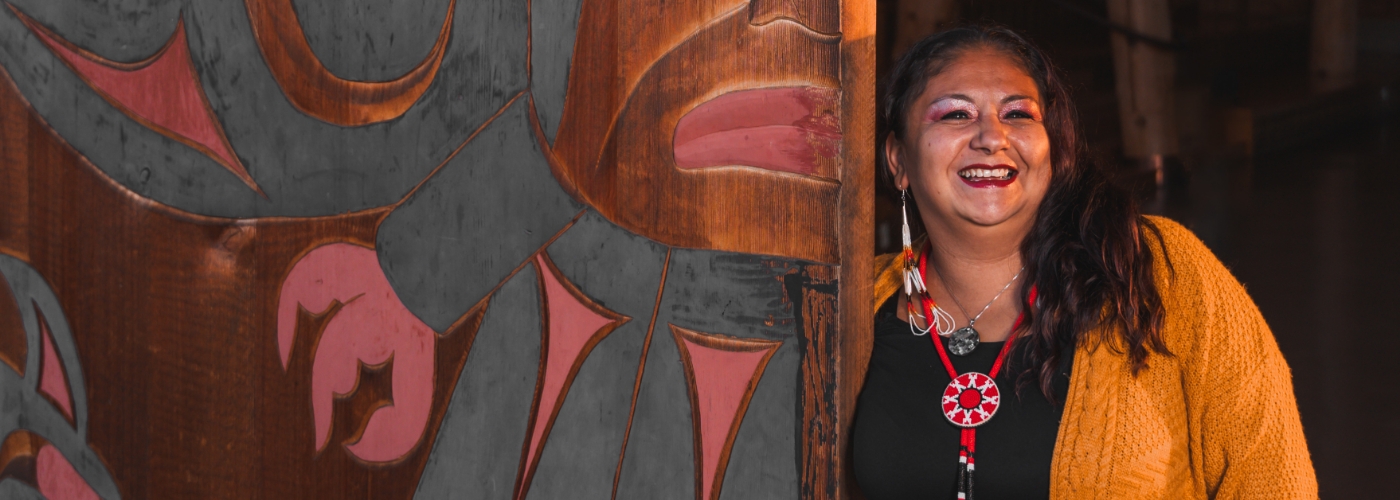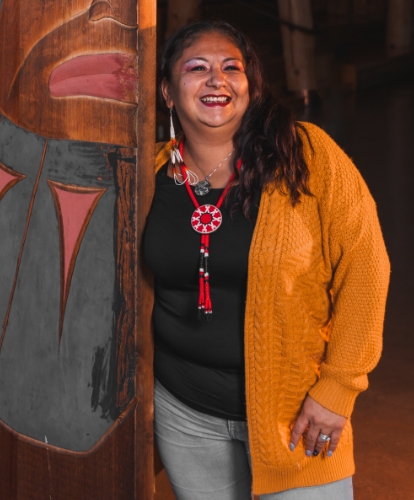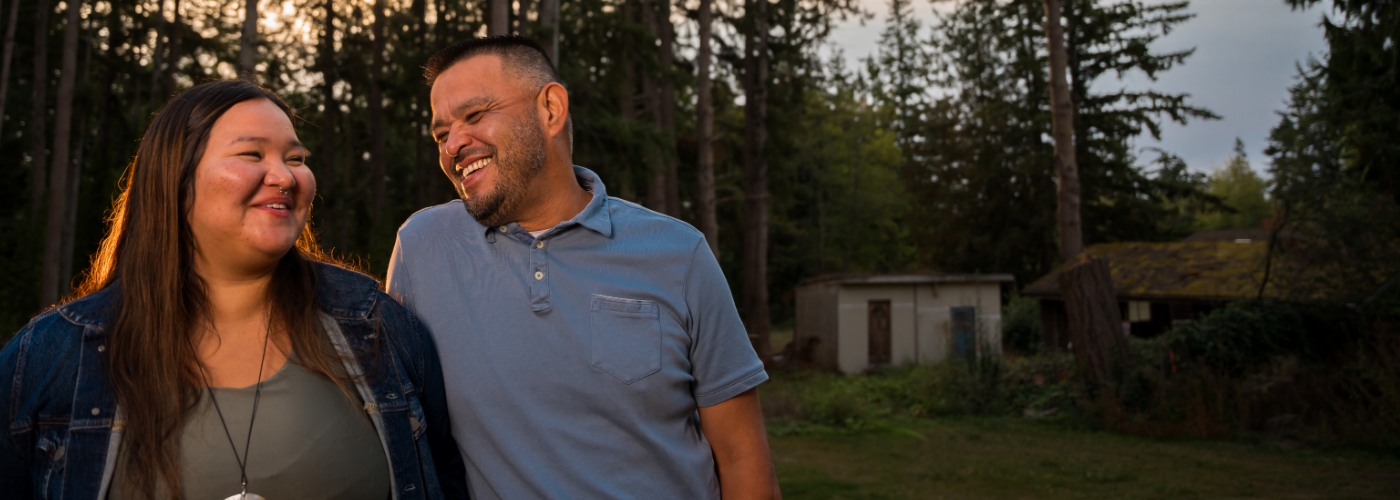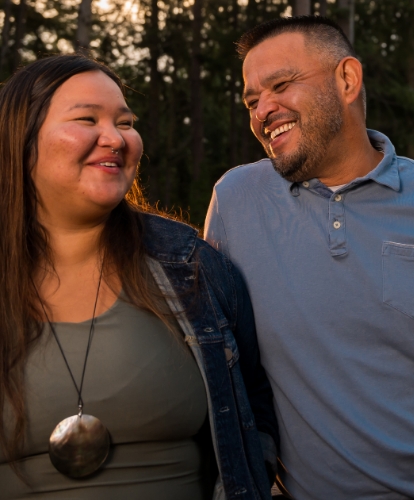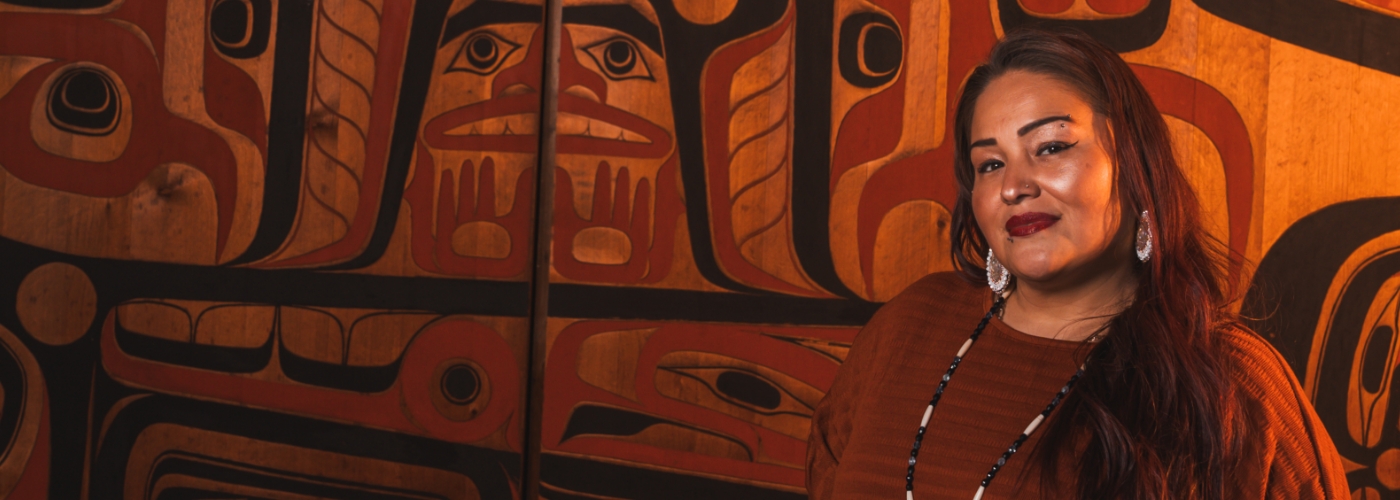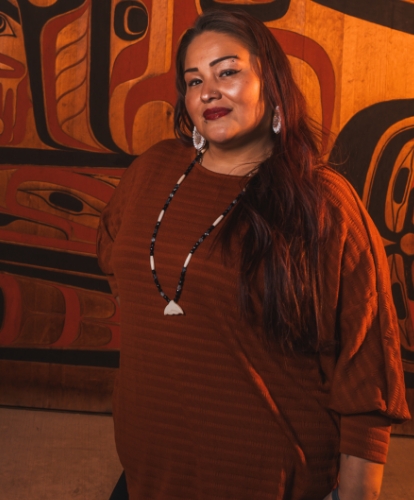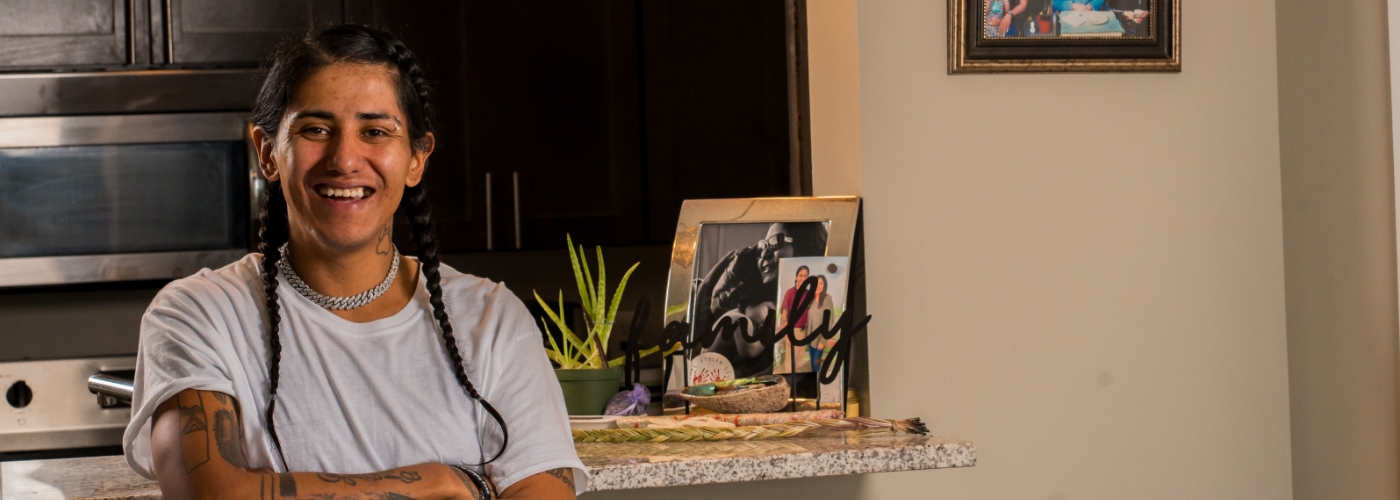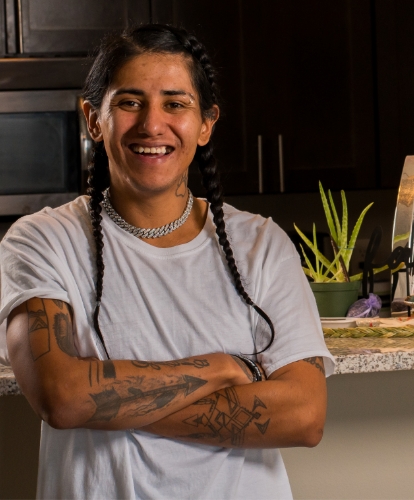Facing Stigma
Stigma about substance use and addiction can affect us all, even if we don’t realize it. And we can share those negative beliefs, or negative stories, even if we don't intend to.
Those stories have a way of keeping people apart who should be together. They can keep us quiet about our own drug use, or a friend or relative’s addiction, when we need support. They can prevent us from starting treatment or make recovery harder.
And through no fault of our own, stigma about addiction, treatment and recovery can live deep within us and our communities. We can’t just undo it.
But we can change the stories we share. All it takes to start is one word.
For Dakota Ford, the word is strength — because living with addiction takes strength every day.
For Robert Coberly, it’s forgiveness. In Native-centered treatment, he gained a sense of forgiveness that helps him keep healing.
For Selina Ramirez and Valarie Ogle, it’s acceptance — because feeling accepted by others and accepting their own stories has been central to recovery for both of them.
From one word, we can start to tell new stories: What addiction really is, and how trauma that affects Native people can feed this disease. How Native-centered treatment, including medication, can connect us to our cultures and help us heal. How support from families and others can make long-term recovery more possible.
By listening to others, by sharing our stories and knowledge, we strengthen the connections that stigma tries to break.
OWN STORIES
Moving past stigma
Stigma about substance use and addiction can affect us all, even if we don’t realize it. And we can share those negative beliefs, or negative stories, even if we don't intend to.
Those stories have a way of keeping people apart who should be together. They can keep us quiet about our own drug use, or a friend or relative’s addiction, when we need support. They can prevent us from starting treatment or make recovery harder.
And through no fault of our own, stigma about addiction, treatment and recovery can live deep within us and our communities. We can’t just undo it.
But we can change the stories we share. All it takes to start is one word.
For Dakota Ford, the word is strength — because living with addiction takes strength every day.
For Robert Coberly, it’s forgiveness. In Native-centered treatment, he gained a sense of forgiveness that helps him keep healing.
For Selina Ramirez and Valarie Ogle, it’s acceptance — because feeling accepted by others and accepting their own stories has been central to recovery for both of them.
From one word, we can start to tell new stories: What addiction really is, and how trauma that affects Native people can feed this disease. How Native-centered treatment, including medication, can connect us to our cultures and help us heal. How support from families and others can make long-term recovery more possible.
By listening to others, by sharing our stories and knowledge, we strengthen the connections that stigma tries to break.
OWN STORIES
Moving past stigma
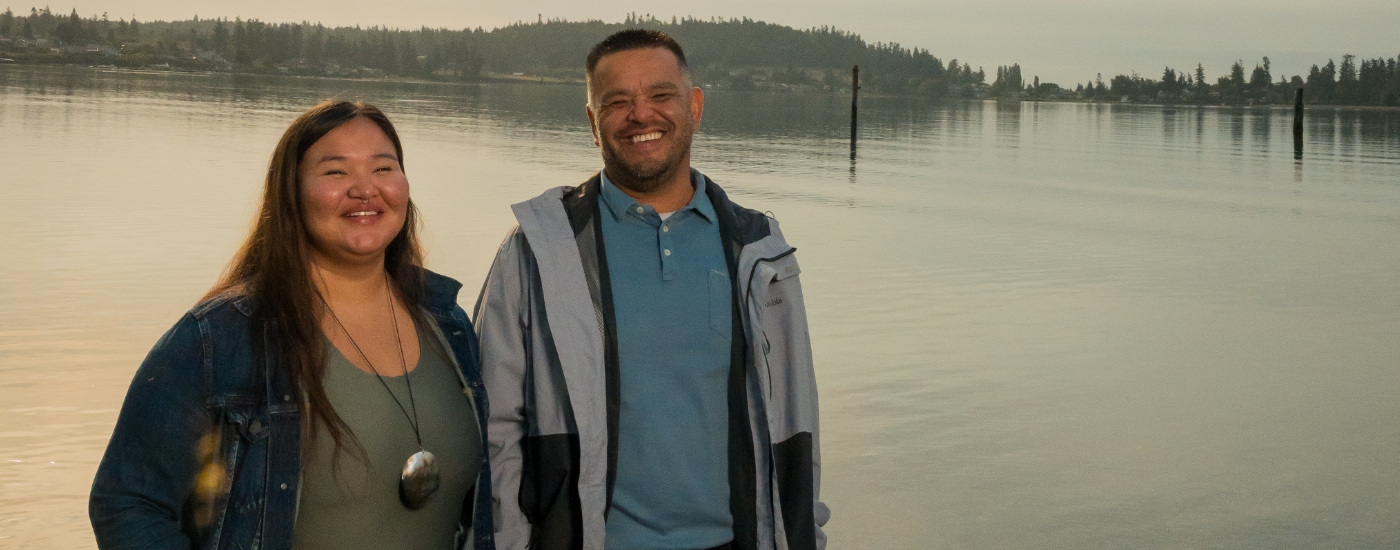
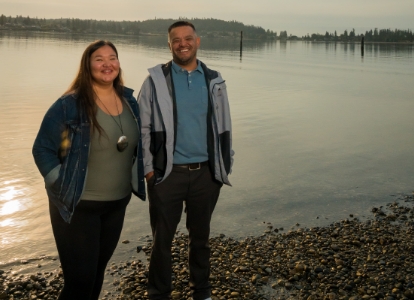
People with supportive families and communities are more likely to recover from substance use disorder. Stigma might make it uncomfortable to talk about addiction or drug use. But letting people know we’re with them can give them strength.
- Encourage relatives and friends who are using fentanyl or other opioids to keep naloxone (Narcan) around. Make sure others know where it is and how to use it.
- Talk with them about Native-centered treatment. Help them find a treatment center and whatever they need to get there. Help them understand that medications for opioid use disorder, such as buprenorphine (Suboxone) or methadone, can help them stop using opioids, including fentanyl. Help them find what they need to start and stay in recovery.
- Ask them about their experiences and concerns. Listen without judgment.
- Tell them that they’re not alone, and that you know and love them for who they are — even when addiction affects their behavior.
- Let them know you’ll be there for them during and after treatment. Knowing they’ll have your support can be important, because sometimes people in recovery have to change their relationships with people who use drugs — even if those relationships are important. They may need a new place to live and a new support network.
- Create connection. Addiction disconnects people from family, culture and community. When we find ways to connect with people in addiction, or to support them as they reconnect, we support their recovery. Invite friends and relatives to dinners, cultural events and other gatherings.
Support from tribes and communities helps people recover.
- Some tribally run treatment centers help patients arrange housing and transportation.
- Trained peer counselors, outpatient programs, transitional houses and other resources in many tribal communities offer additional support.
- Events like community dinners and conversations about addiction, treatment and recovery help people make connections. They also give people a chance to share their stories — which can help them heal and help others understand addiction, treatment and recovery.
Stigma about addiction affects family members and friends. It can be hard to support someone who’s struggling, especially if you feel judged as their parent or relative. Counseling or groups for people with relatives with substance use disorder helps many people heal. But anyone can support a relative of someone with substance use disorder. Start by asking them how they’re doing. Opening the conversation and listening with compassion can help people feel better. It also helps ease stigma.
People with supportive families and communities are more likely to recover from substance use disorder. Stigma might make it uncomfortable to talk about addiction or drug use. But letting people know we’re with them can give them strength.
- Encourage relatives and friends who are using fentanyl or other opioids to keep naloxone (Narcan) around. Make sure others know where it is and how to use it.
- Talk with them about Native-centered treatment. Help them find a treatment center and whatever they need to get there. Help them understand that medications for opioid use disorder, such as buprenorphine (Suboxone) or methadone, can help them stop using opioids, including fentanyl. Help them find what they need to start and stay in recovery.
- Ask them about their experiences and concerns. Listen without judgment.
- Tell them that they’re not alone, and that you know and love them for who they are — even when addiction affects their behavior.
- Let them know you’ll be there for them during and after treatment. Knowing they’ll have your support can be important, because sometimes people in recovery have to change their relationships with people who use drugs — even if those relationships are important. They may need a new place to live and a new support network.
- Create connection. Addiction disconnects people from family, culture and community. When we find ways to connect with people in addiction, or to support them as they reconnect, we support their recovery. Invite friends and relatives to dinners, cultural events and other gatherings.
Support from tribes and communities helps people recover.
- Some tribally run treatment centers help patients arrange housing and transportation.
- Trained peer counselors, outpatient programs, transitional houses and other resources in many tribal communities offer additional support.
- Events like community dinners and conversations about addiction, treatment and recovery help people make connections. They also give people a chance to share their stories — which can help them heal and help others understand addiction, treatment and recovery.
Stigma about addiction affects family members and friends. It can be hard to support someone who’s struggling, especially if you feel judged as their parent or relative. Counseling or groups for people with relatives with substance use disorder helps many people heal. But anyone can support a relative of someone with substance use disorder. Start by asking them how they’re doing. Opening the conversation and listening with compassion can help people feel better. It also helps ease stigma.
We can help people without enabling them.
Sometimes people worry that helping someone who uses drugs is “enabling” them. But we can support people without supporting their addiction.
- Helping means supporting a person without protecting them from the reality of their substance use disorder. It might be telling them we care about them and are there to help. It might be asking them about their experience and listening with compassion. This can make them feel safer asking for help when they’re ready.
- Enabling means providing help that supports their addiction. That might be making excuses for them or taking on their responsibilities. If you’re crossing healthy boundaries or using up your own strength and resources, you might be enabling someone’s addiction.
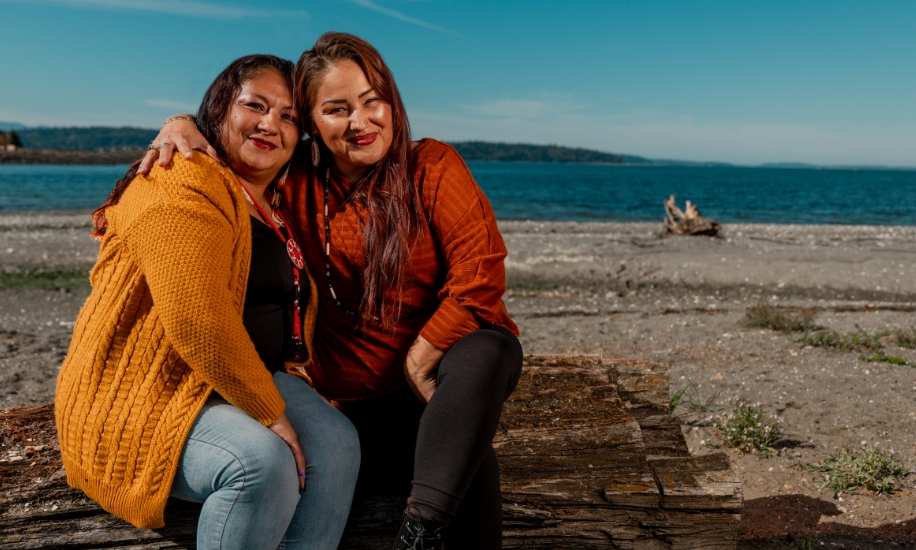
change a story.
The way we talk about addiction tells a story that others take to heart. It’s a story about how we see and think of people living with this disease. Here are a few ways we can build trust and hope.
Ask and listen. By asking people about their wins (even small ones), we acknowledge their strength. When we ask what they need rather than assuming we know, we honor their dignity.
Use names, not labels. When we say Jacy is in treatment or Susan is in recovery from substance use disorder, we honor them as whole people rather than as “addicts” or “ex-addicts.”
Consider saying someone is “no longer using” rather than “clean.” Using drugs doesn’t make a person “dirty.”
Help build understanding. You can remind others that addiction is an illness, often connected to trauma. Describe the courage and strength that it takes to choose treatment. Talk about relapse as a part of recovery that people can move past with support.
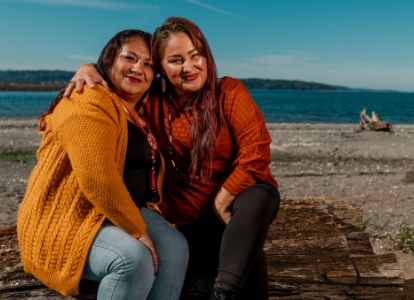
change a story.
The way we talk about addiction tells a story that others take to heart. It’s a story about how we see and think of people living with this disease. Here are a few ways we can build trust and hope.
Ask and listen. By asking people about their wins (even small ones), we acknowledge their strength. When we ask what they need rather than assuming we know, we honor their dignity.
Use names, not labels. When we say Jacy is in treatment or Susan is in recovery from substance use disorder, we honor them as whole people rather than as “addicts” or “ex-addicts.”
Consider saying someone is “no longer using” rather than “clean.” Using drugs doesn’t make a person “dirty.”
Help build understanding. You can remind others that addiction is an illness, often connected to trauma. Describe the courage and strength that it takes to choose treatment. Talk about relapse as a part of recovery that people can move past with support.
